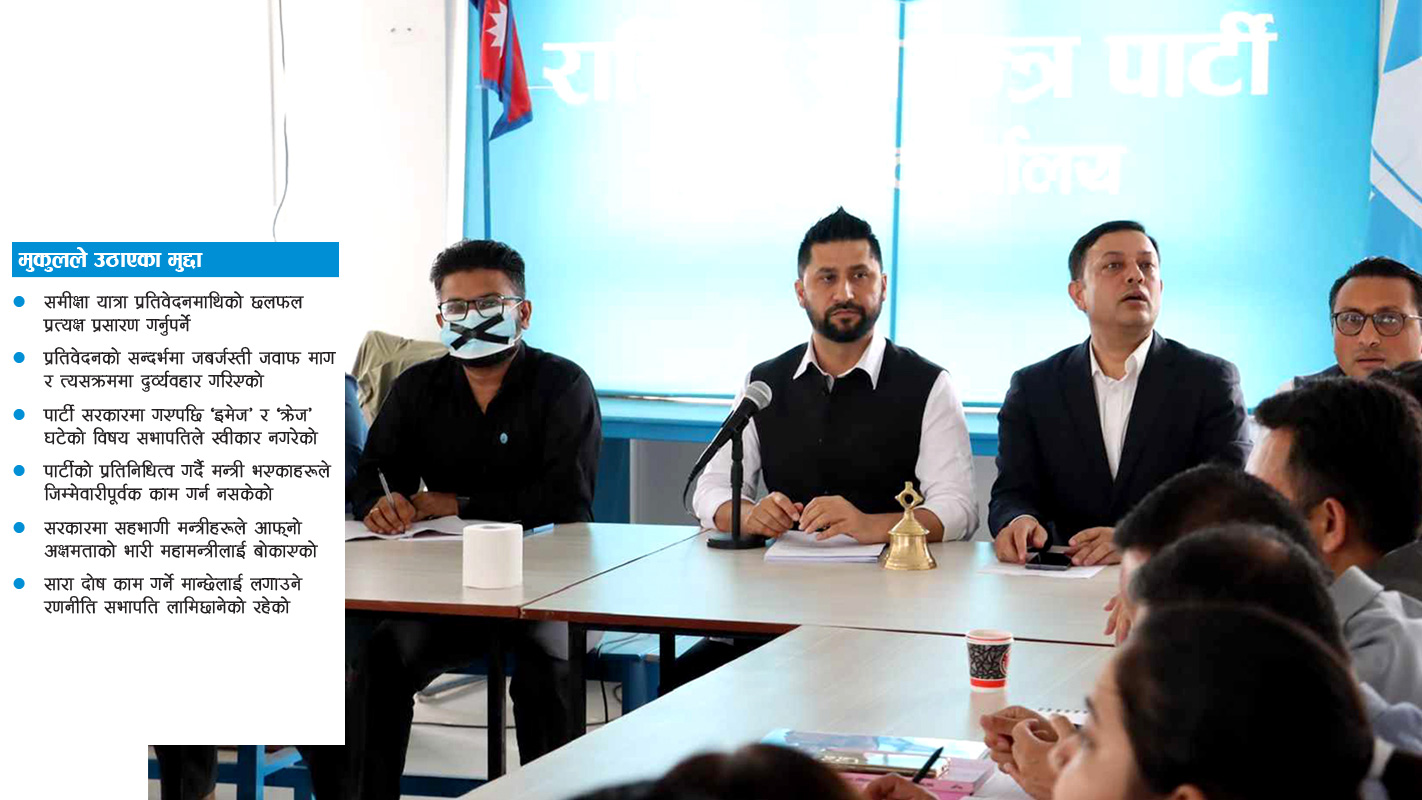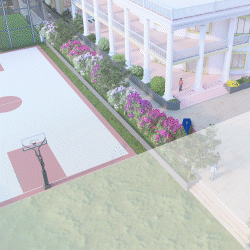Theater in the village
We use Google Cloud Translation Services. Google requires we provide the following disclaimer relating to use of this service:
This service may contain translations powered by Google. Google disclaims all warranties related to the translations, expressed or implied, including any warranties of accuracy, reliability, and any implied warranties of merchantability, fitness for a particular purpose, and noninfringement.


Democracy had just entered the country. Around the year 2064, Ghimire Yuvraj Shilpi was digging the foundation of the playhouse in Kathmandu. After about 17 years Yuvraj is again busy digging the foundation of the theater. But this year the place has changed. And, that is, Viratan Chowk.



The federal system along with the republic has decentralized the country. There are three levels of government namely local, state and union. "It is not only the government, but also arts, literature, and drama that need to be decentralized," says Yuvraj, "the time of always talking about Kathmandu is gone."
Especially Yuvraj often runs around the country carrying drama. He makes the issue of oppression of women, Dalits and Madhesi the main subject of the play. Lately, he has been trying to connect the environmental crisis with social movements through drama. Through 'Snowy Earth Yatra', he walked across the country raising awareness about the intensive exploitation of the environment. A trick came to him a decade ago while doing theater, theater in the village. He took the
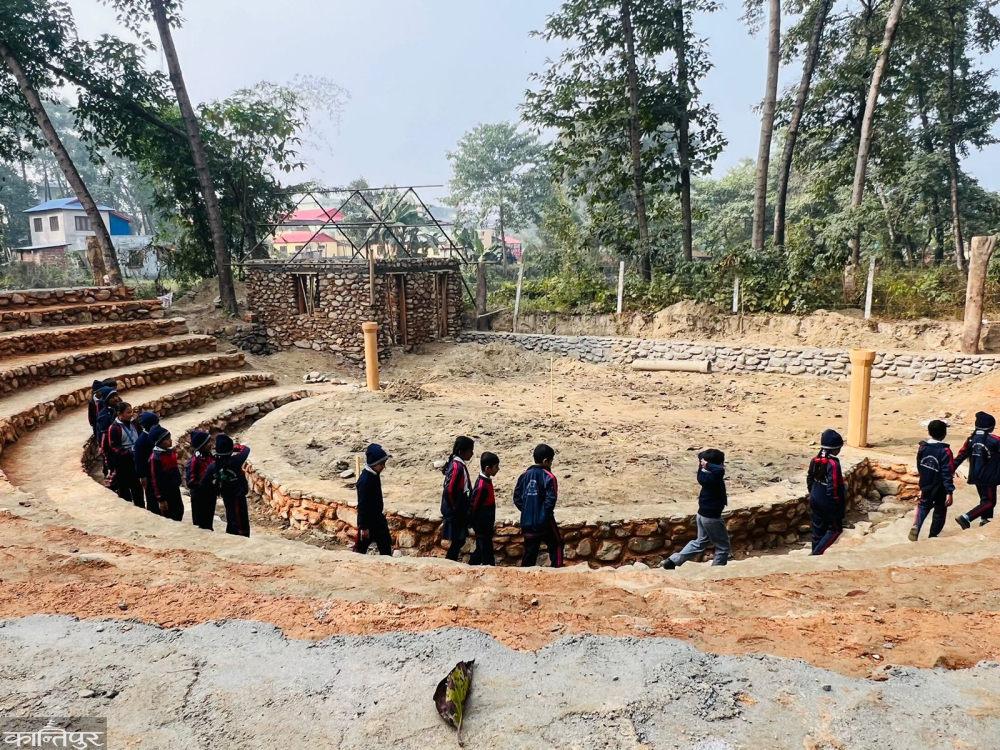 strategy to the implementation level. He built Tharu theater in Bardia, Selo in Sindhupalanchok and Jhorhat theater in Morang. At the moment, he is starting a new play house in Biratchowk, Haraincha, his birthplace. He says that the theater is being built according to the concept of 'Village Theatre'. Yuvraj said that the new theater should be built not only in Kathmandu, but also outside.
strategy to the implementation level. He built Tharu theater in Bardia, Selo in Sindhupalanchok and Jhorhat theater in Morang. At the moment, he is starting a new play house in Biratchowk, Haraincha, his birthplace. He says that the theater is being built according to the concept of 'Village Theatre'. Yuvraj said that the new theater should be built not only in Kathmandu, but also outside.
After visiting more than 20 theaters, he felt that there is a large population outside Kathmandu is Those who are deprived of seeing the play. They have not even got to understand about the play. He met not only the audience but also talented actors outside Kathmandu. He also took many of the talents he met during the journey to the stage. For the residents of Kathmandu, art, literature, cinema, everything is easily accessible. However, the village audience is deprived of all those opportunities. "If the state goes to federalism, not only the administration, but also the literary-cultural rights of the common people should be decentralized," says Yuvraj.
He thought that there should be a theater center somewhere outside Kathmandu. "When Shilpi got land in the area where I was born, it became easy to build a theater here," Yuvraj added, "The moral support of the local people was necessary to complete this process. It was easier to have our own place. The good thing about Kathmandu is that the theater tradition has been established there. However, when the state does not help, Zenten theaters are running on ticket money. Tickets are expensive. Those who want to watch the drama but don't have the money miss out on watching the drama.
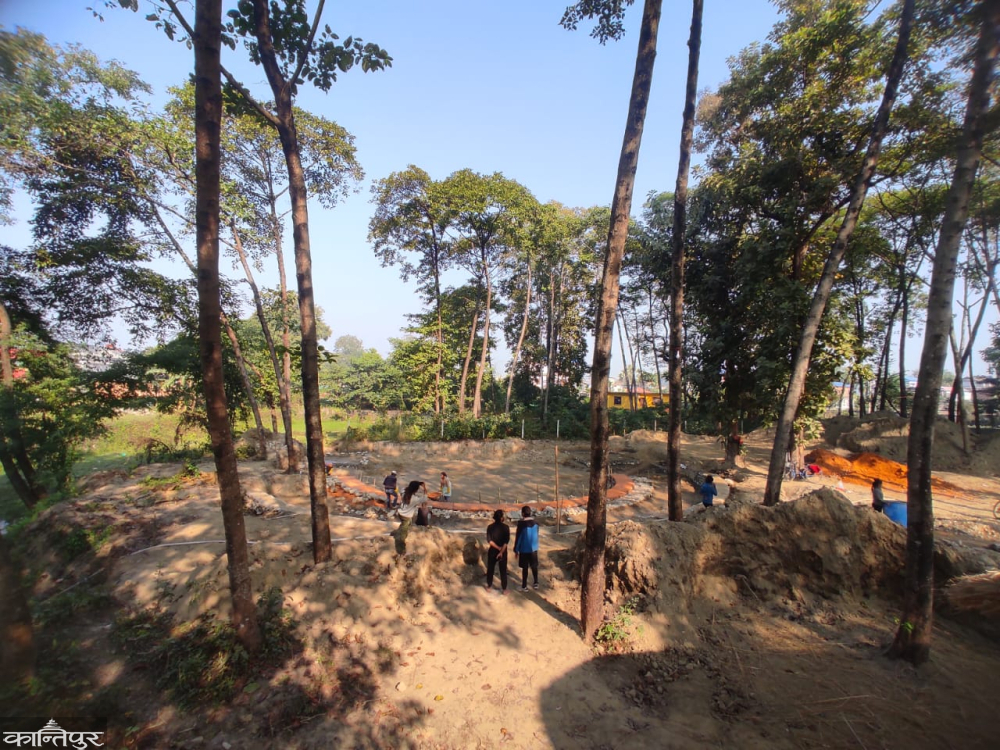 Yuvraj is creating an environment where even those who don't have money can watch dramas. Bringing the people of the village to the theater at least twice a month. He believes that their creativity will also develop. A theater is a creative place. People who come here start to think a little more loosely,' says Yuvraj, 'many people need to get out of social discrimination, caste oppression, superstition and see art and literature.'
Yuvraj is creating an environment where even those who don't have money can watch dramas. Bringing the people of the village to the theater at least twice a month. He believes that their creativity will also develop. A theater is a creative place. People who come here start to think a little more loosely,' says Yuvraj, 'many people need to get out of social discrimination, caste oppression, superstition and see art and literature.'
Sunder-Haraincha's then mayor Shiv Prasad Dhakal was shown a play by Yuvraj a few years ago. And offered to provide land for the construction of drama house. Dhakal was approved. However, it took almost four years to get the approval of the entire executive and society. Finally, Shilpi got about 15 kattha land for building the theater. In which 5 theaters are closed and two are open. And the remaining 10 kathas will have gardens.
The construction of the mukt (open) theater with a capacity of about 470 spectators has just been completed. It is built in the amphitheater style of Europe. "The purpose of open theater is that there should be no walls for the convenience of common people to come," says Yuvraj, "Everywhere people are facing torture while paying for tickets." Drama center is the right of every villager. Anyone can come whenever they want, watch plays, sit, stroll and have fun.
The free theater and cafe are ready. In which Shilpi has spent 35 lakh Chanchun. Now Shilpi has appealed to the state government to build a closed theater with a hostel. Shilpi's plan is to get the state government to take responsibility for the construction of the playhouse. Yuvraj, who visited various ministries, chief ministers and ministers of the state government for some time, said, "The state government does not have a cultural policy." I did not get a solid plan on how to develop through education and awareness.'
According to Yuvraj, a budget of 16.5 million is now spent on the construction of theaters, housing houses, training centers, libraries, yoga places, etc. Shilpi is planning to be able to plan within the year 2082. "We are trying to make this project like the National School of Drama (NSD) in Delhi," he added. He says that it will benefit the country if they can bring trainees to learn drama. What is
free theater?
is not an entirely new use. However, the coin of this word was done by Shilpi himself. Free theater was born by fusing the elements of Europe's Ampi Theater, Kathmandu's Double Theater, Kachhari, street drama. An organized and artistic drama can also take place in the open. All elements within a closed theater can also be in an open theater.
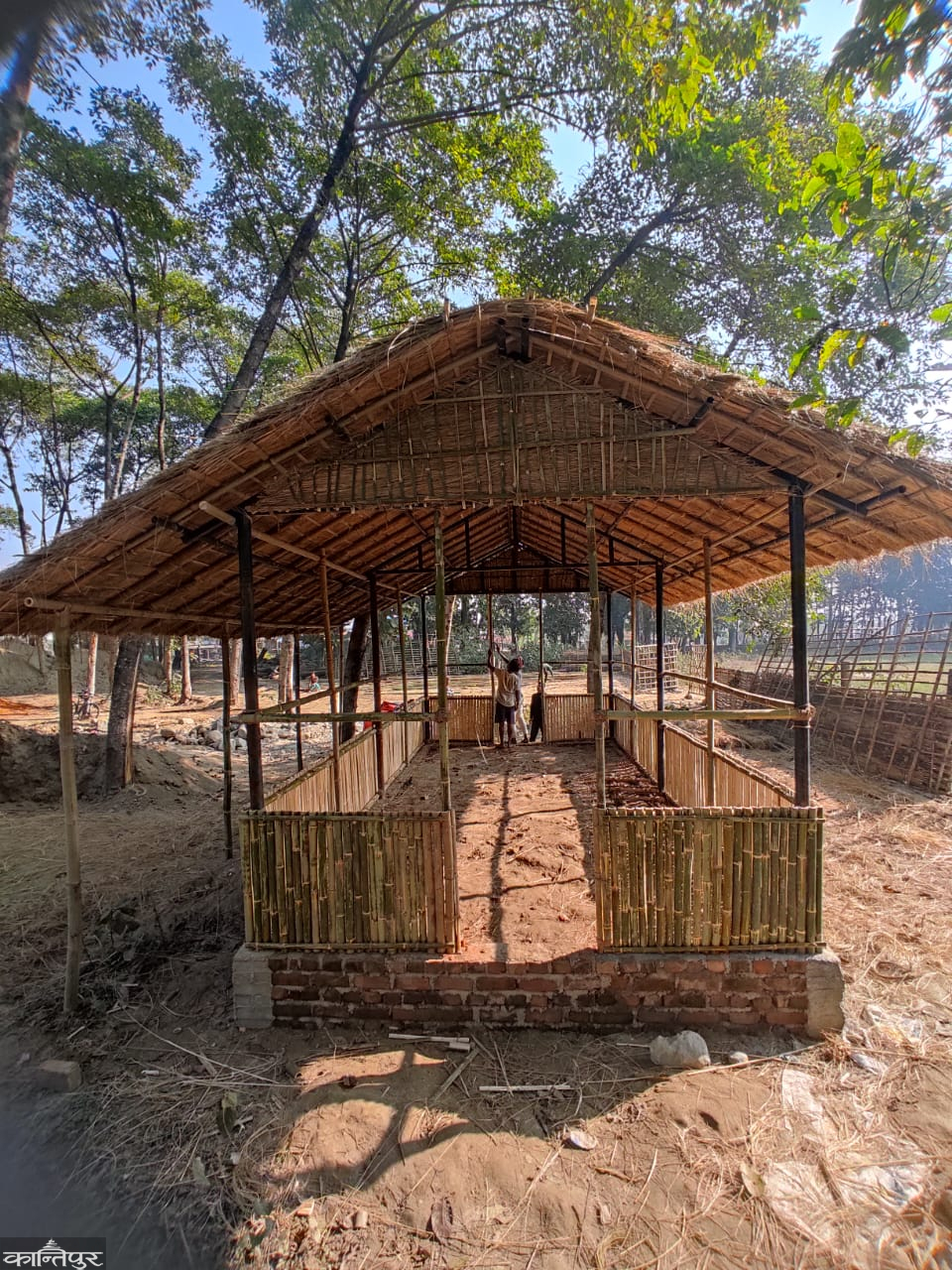 However, in the closed theater, a wall has stopped a certain person. But the theater that is performed in an open space so that the wall does not exclude anyone is called open theater.
However, in the closed theater, a wall has stopped a certain person. But the theater that is performed in an open space so that the wall does not exclude anyone is called open theater.
"It has a standard system of lighting, stage, costumes and the audience is treated with respect," Yuvraj said, "The audience is given advance notice." And arrangements are made to watch by placing it in a respectable chair.' Yuvraj has a bitter experience of being tortured by the audience due to
court, street plays etc. "Mukt Rangmanch has been started to establish access to the plays of common people," Yuvraj said, "It is the right of every citizen to watch art, literature and cinema."
 प्रकाशित : जेष्ठ १, २०८१ ०९:१३
प्रकाशित : जेष्ठ १, २०८१ ०९:१३

 २४.१२°C काठमाडौं
२४.१२°C काठमाडौं











